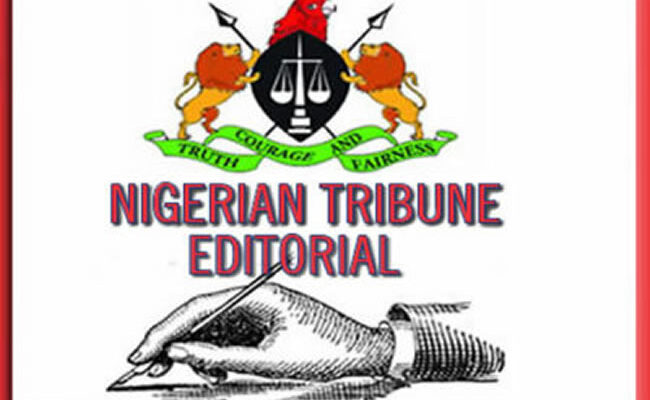AMID growing public frustration in Nigeria and other Sub-Saharan African countries undergoing economic reforms, the International Monetary Fund (IMF) has issued recommendations aimed at making these reforms more palatable to citizens. In its latest “Regional Economic Outlook for Sub-Saharan Africa” report, the IMF highlighted the phenomenon of “adjustment fatigue,” a state of public weariness with reform processes which has been accompanied by civil resistance in countries such as Nigeria, Ghana, Ethiopia and Kenya.
Nigeria, in particular, has witnessed significant civil unrest and labour strikes as discontent mounts over the effects of macroeconomic reforms, especially those involving the deregulation of petrol prices and foreign exchange. The IMF has advised policymakers to adopt strategies such as broad-based engagement with the populace, a clear communication strategy to articulate the benefits of reforms, partnerships with influential local figures, careful design and sequencing of reforms, implementation of compensatory measures, and a focus on fostering inclusive growth.
The IMF’s report presents these measures as an opportunity to mobilise public support for deep economic reforms. It states: “In the face of popular frustration, there is also an opportunity to work to mobilise support for large, deep reforms, of the sort that, for instance, Ethiopia, Ghana, Kenya, and Nigeria are pursuing. Realising this opportunity requires rethinking reform strategies, to build and maintain pro-growth coalitions among constituent leaders and the general public. This will require greater attention to communication and engagement strategies, reform design, compensatory measures, and rebuilding trust in public institutions.” It further emphasises the need for participatory approaches involving two-way dialogue, public ownership of reforms, and collaboration with business and civil society stakeholders. The report adds: “Communications should clearly articulate the benefits of reform, the costs of inaction, the accompanying compensatory measures, and correct misinformation and misperceptions.”

While the IMF’s recommendations appear constructive, they expose a glaring inconsistency. The same policies the Fund now advises governments to approach with caution and mitigation are those it previously championed with enthusiasm. This double-speak raises questions about the sincerity and utility of IMF’s advice, as its past endorsements had often led to economic dislocations and public unrest. Nigerian leaders must exercise caution in embracing prescriptions from external institutions such as the IMF or World Bank. While these bodies often advocate reforms purportedly aimed at economic stabilisation and growth, their one-size-fits-all approaches frequently disregard the nuanced realities of the implementing nations. Every society requires reforms as part of its natural trajectory of growth and development. However, the design and implementation of such reforms must be firmly rooted in local contexts, guided by an understanding of socio-economic, cultural, and political dynamics, and owned by the people they are meant to serve.
Reforms dictated by external bodies have historically struggled to achieve their intended outcomes in developing countries, often exacerbating inequality and hardship. This is because these prescriptions typically prioritise macroeconomic indicators over tangible improvements in living standards. In Nigeria’s case, the ultimate aim of externally-driven reforms has not always aligned with the needs of the populace, creating a disconnect between policy objectives and citizens’ welfare. President Bola Tinubu’s administration faces a critical juncture in Nigeria’s economic trajectory. The abrupt removal of fuel subsidies and the liberalisation of the naira exchange rate, while aligned with IMF recommendations, have led to significant economic strain for ordinary Nigerians. These reforms, implemented without adequate cushioning measures or gradual implementation, have resulted in skyrocketing inflation, reduced purchasing power, and widespread public dissatisfaction.
While reforms are necessary for long-term economic stability and growth, their execution must be mindful of immediate social and economic realities. Policymakers must adopt a phased, carefully sequenced approach that allows for public adaptation and incorporates mitigating strategies to minimise hardship. For instance, subsidy removal could have been paired with targeted social safety nets or temporary relief measures to shield vulnerable populations from its harshest effects. Similarly, exchange rate reforms should have been preceded by efforts to stabilise the market and build confidence in monetary policies.

Nigeria must chart a reform path that reflects its unique economic strengths and challenges. Homegrown solutions, tailored to leverage the country’s comparative advantages, offer a sustainable alternative to blanket liberalisation policies imposed from outside. For example, the country’s vast natural and human resources provide opportunities for policies that drive industrialisation, agricultural self-sufficiency, and energy sector reforms, with the twin goals of economic diversification and job creation. Reform policies must be designed with the people in mind, incorporating mechanisms for real-time feedback and flexibility to adjust strategies as conditions evolve. Public participation in policy formulation is crucial to fostering ownership and trust, ensuring that reforms are not perceived as imposed dictates but as collective efforts to improve national welfare. Pro-people policies that prioritise economic stability, social equity, and citizens’ well-being must take precedence over rigid adherence to external benchmarks. Economic reforms should be evaluated based on their ability to lift citizens out of poverty, create jobs, and enhance overall quality of life, rather than solely on metrics such as fiscal deficit reduction or currency stabilisation. Moreover, Nigeria must invest in rebuilding trust in public institutions. Transparent governance, effective communication of reform goals and accountability in the use of public resources are vital for gaining public support and ensuring the success of reforms.
Nigeria’s path to sustainable economic growth lies in embracing reforms that are not only pragmatic and context-sensitive but also inclusive and citizen-centered. External recommendations can serve as guides, but the country must ultimately take ownership of its policies, ensuring that they align with local realities and aspirations.
READ ALSO: Examining President Tinubu’s economic policies







